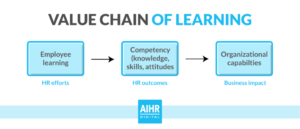Coffee is a beloved beverage enjoyed by millions of people worldwide for its ability to boost energy, improve mood, and enhance productivity. However, like anything, moderation is key. While a cup or two of coffee per day can offer health benefits, consuming excessive amounts can lead to a variety of negative side effects. If you’re wondering about the potential risks of drinking too much coffee, here’s what you should know.
1. Increased Anxiety and Jitters
One of the most common side effects of drinking too much coffee is heightened anxiety. Caffeine, the active ingredient in coffee, is a stimulant that affects the central nervous system. In moderate amounts, it can help improve alertness, but excessive consumption can lead to:
- Nervousness
- Restlessness
- Increased heart rate (palpitations)
- Shaky hands or “coffee jitters”
If you are prone to anxiety or have an anxiety disorder, excessive coffee intake can exacerbate symptoms and make it harder to relax.
2. Disrupted Sleep Patterns
Caffeine is known for its ability to keep you awake and alert. However, drinking coffee too late in the day or consuming high amounts throughout the day can interfere with your sleep cycle. Caffeine can stay in your system for several hours, potentially leading to:
- Trouble falling asleep
- Decreased sleep quality
- Frequent waking during the night
As a general rule, avoid drinking coffee at least 6 hours before bedtime to minimize disruptions to your sleep.
3. Digestive Issues
Drinking too much coffee can irritate your digestive system. Coffee stimulates the production of stomach acid, which can cause a variety of gastrointestinal issues such as:
- Acid reflux
- Heartburn
- Upset stomach or indigestion
- Bloating or discomfort
For those with sensitive stomachs or pre-existing digestive conditions like irritable bowel syndrome (IBS), consuming large amounts of coffee can aggravate symptoms.
4. Increased Heart Rate and Blood Pressure
While moderate caffeine intake may have little effect on most people’s blood pressure, excessive consumption can cause temporary spikes in both heart rate and blood pressure. This can be particularly concerning for those with pre-existing heart conditions or hypertension. Signs of caffeine-induced heart rate issues include:
- Rapid heartbeat (tachycardia)
- Palpitations
- Lightheadedness or dizziness
It’s important to monitor your caffeine intake if you have a heart condition or are at risk of high blood pressure.
5. Dependency and Withdrawal Symptoms
Drinking too much coffee can lead to physical dependence on caffeine. This means that your body becomes accustomed to regular doses, and you may experience withdrawal symptoms if you try to cut back or stop suddenly. Symptoms of caffeine withdrawal include:
- Headaches
- Fatigue
- Irritability
- Difficulty concentrating
If you’re concerned about caffeine dependence, consider gradually reducing your intake to avoid these uncomfortable withdrawal effects.
6. Bone Health Concerns
Excessive coffee consumption has been linked to a decrease in calcium absorption, which could potentially affect bone health over time. Studies suggest that drinking more than 3-4 cups of coffee per day may increase the risk of:
- Decreased bone density
- Increased risk of fractures
To mitigate this, make sure you’re consuming enough calcium-rich foods or supplements, especially if you regularly drink a lot of coffee.
7. Increased Risk of Certain Health Issues
While moderate coffee intake has been associated with a reduced risk of certain health conditions, drinking too much coffee could have the opposite effect. For example:
- Higher caffeine intake has been linked to an increased risk of heart disease in some individuals due to the effects of caffeine on blood pressure and heart rhythm.
- Increased risk of anxiety disorders: Excessive coffee can trigger or worsen anxiety and panic attacks, particularly in those genetically predisposed to these conditions.
- Increased risk of dehydration: Although coffee can hydrate you, its caffeine content can have a diuretic effect, which may lead to dehydration when consumed in large quantities.
8. Addiction to the “Energy Boost”
Coffee provides a quick energy boost, which can become addictive over time. When consumed in excess, you might find yourself reaching for coffee constantly to maintain energy levels, leading to a cycle of dependence. While this might seem harmless at first, it can result in long-term fatigue, as your body becomes reliant on caffeine for energy.
9. Increased Risk of Pregnancy Complications
For pregnant women, high caffeine intake has been associated with an increased risk of complications such as:
- Miscarriage
- Preterm birth
- Low birth weight
It’s generally recommended that pregnant women limit their caffeine intake to no more than 200 milligrams per day (about one 12-ounce cup of coffee) to reduce these risks.
How Much Coffee Is Too Much?
The recommended daily limit for caffeine is about 400 milligrams, which is roughly equivalent to four 8-ounce cups of brewed coffee. However, individual tolerance levels vary, so it’s essential to listen to your body. If you experience any of the side effects mentioned above, it may be a sign that you’re drinking too much coffee.
Conclusion
While coffee can provide numerous benefits, including increased alertness, improved mood, and potential health advantages, consuming too much can lead to unwanted side effects. By drinking coffee in moderation and being mindful of your body’s signals, you can continue to enjoy your favorite cup without compromising your health. If you experience any negative side effects, it may be worth reducing your coffee intake or switching to lower-caffeine options, such as decaf or herbal teas.
Remember, balance is key to enjoying coffee’s benefits without experiencing its drawbacks!











